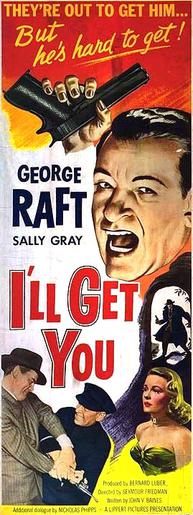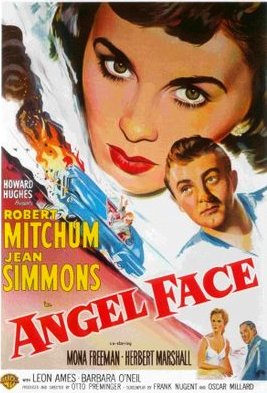Out In The Be-Bop 1950s Night- The Time Of Motorcycle Bill-An Encore
From The Pen Of Joshua Lawrence Breslin
There was a scourge in the land, in the 1950s American land. No, not the dreaded but fatalistically expected BIG ONE that would send old mother earth back to square one, or worst, coming from the Russkies. Sure that was in the air and every school boy and girl had their giggling tales of having to hide, hide ass up, under some desk or other useless defense in air raid drill preparations for that eventually. Sure, as well, the air stunk of red scare, military build-up cold war “your mommy is a commie turns her in.” But that was not the day to day scare for every self-respecting parent from Portland to the Pacific. That was reserved for the deadly dreaded motorcycle scare that had every father telling his son to beware of falling under the Marlon Brando sway and spiraling down to a life, a low life of crime and debauchery (of course said son not knowing of the word, the meaning of debauchery, until much later just shrugged his innocent shoulders). More importantly every mother, every blessed mother, self-respecting or not (with a gentle nod from Dad) warned off their daughters against this madness and perversity.
Of course that did not stop the sons from mooning over every Harley that rode the ride down Main Street, Olde Saco (really U.S. Route One but everybody called it Main Street and it was) or the daughters from mooning (and maybe more) over the low- riders churning the metal on those bad ass machines. Even prime and proper Lily Dumont, the queen of Saint Brigitte’s Catholic Church rectitude on Sunday and wanna-be “mama” every other waking minute of late. And the object of her desire? One “Motorcycle Bill,” the baddest low- rider in all of Olde Saco.
Now baddest in Olde Saco (that’s up in ocean edge Maine for the heathens and others not in the know) was not exactly baddest in the whole wide world, nowhere as near as bad as say Sonny Barger and his henchmen outlaws- for- real bikers out in Hell’s Angels Oakland as chronicled by Doctor Gonzo (before he was Gonzo), Hunter S. Thompson in his saga of murder and mayhem sociological- literary study Hell’s Angels. But as much is in life one must accept the context. And the context here is that in sleepy dying mill town Olde Saco mere ownership, hell maybe mere desire for ownership, of a bike was prima facie evidence of badness. So every precious daughter was specifically warned away from Motorcycle Bill and his Vincent Black Lightning 1952 (although no mother, and maybe no daughter either, could probably tell the difference between that sleek English bike and a big pig Harley). But Madame Dumont felt no need to do so with her sweet sixteen Lily who, maybe, pretty please maybe was going to be one of god’s women, maybe enter the convent over in Cedars Of Lebanon Springs in a couple of years after she graduated from Olde Saco High along with her Class of 1960.
But that was before, walking home to Olde Saco’s French- Canadian (F-C) quarter, the Acre, on Atlantic Avenue with classmate and best friend Clara Dubois, Lily heard the thunder of Bill’s bike coming up behind them, stopping, Bill giving Lily a bow, and them revving the machine up and doing a couple of circle cuts within a hair’s breathe of the girls. Then just a suddenly he was off, and Lily, well, Lily was hooked, hooked on Motorcycle Bill, although she did not know it, know it for certain until that night in her room when she tossed and turned all night and did not ask god, or any of his associates, to guide her in this matter.
One thing about living in a sleepy old town, a sleepy old dying mill town, is that everybody knows everybody’s business at least as far as any person wants that information out on the public square. Two things are important before we go on. One is that everybody in town that counted which meant every junior and senior class high schooler in Olde Saco knew that Bill had made a “play” for Lily. And the buzz got its start from none other than Clara Dubois who had her own hankerings after the motorcycle man (her source of wonder though was more, well lets’ call it crass than Lily’s, Clara wanted to know if Bill was build, build with sexual power like his motorcycle. She had innocently, perhaps, understood the Marlon mystique). The second was that Bill, other than his bike, was not a low life low- rider but just a guy who liked to ride the roads free and easy. See Bill was a freshman over at Bowdoin and he used the bike as much to get back and forth as to do wheelies in front of impressionable teenage girls from the Acre.
One day, a few days after their Motorcycle Bill “introduction,” when Lily and Clara were over at Seal Rock at the end of Olde Saco Beach (not its real name but given it because it was the local lovers’ lane and many things had been sealed there including a fair share of “doing the do”) Bill came up behind them sans his bike. Now not on his bike, without a helmet, and carrying books, books of all things, he looked like any student except maybe a little bolder and a little less reserved. He started talking to Lily and something in his demeanor attracted her to him. (Clara swore, swore on seven bibles, that Lily was kind of stand-offish at first but Lily says no.) They talked for a while and then Bill asked Lily if she wanted a ride home. She hemmed and hawed but there was just something about him that spoke of mystery (who knows what Clara thought). She agreed and they walked a couple of blocks to where he was parked. And there Lily saw that Vincent Black Lightning 1952 of her dreams. Without a word, without anything done except to tie her hair back she climbed on the back of the bike at Bill’s beckon. And that is how one Lily Dumont became William Kelly’s motorcycle “mama.”
ARTIST: Richard Thompson
TITLE: 1952 Vincent Black Lightning
Lyrics and Chords
TITLE: 1952 Vincent Black Lightning
Lyrics and Chords
Said Red Molly to James that's a fine motorbike
A girl could feel special on any such like
Said James to Red Molly, well my hat's off to you
It's a Vincent Black Lightning, 1952
And I've seen you at the corners and cafes it seems
Red hair and black leather, my favorite color scheme
And he pulled her on behind
And down to Box Hill they did ride
/ A - - - D - / - - - - A - / : / E - D A /
/ E - D A - / Bm - D - / - - - - A - - - /
Said James to Red Molly, here's a ring for your right hand
But I'll tell you in earnest I'm a dangerous man
I've fought with the law since I was seventeen
I robbed many a man to get my Vincent machine
Now I'm 21 years, I might make 22
And I don't mind dying, but for the love of you
And if fate should break my stride
Then I'll give you my Vincent to ride
Come down, come down, Red Molly, called Sergeant McRae
For they've taken young James Adie for armed robbery
Shotgun blast hit his chest, left nothing inside
Oh, come down, Red Molly to his dying bedside
When she came to the hospital, there wasn't much left
He was running out of road, he was running out of breath
But he smiled to see her cry
And said I'll give you my Vincent to ride
Says James, in my opinion, there's nothing in this world
Beats a 52 Vincent and a red headed girl
Now Nortons and Indians and Greeveses won't do
They don't have a soul like a Vincent 52
He reached for her hand and he slipped her the keys
He said I've got no further use for these
I see angels on Ariels in leather and chrome
Swooping down from heaven to carry me home
And he gave her one last kiss and died






